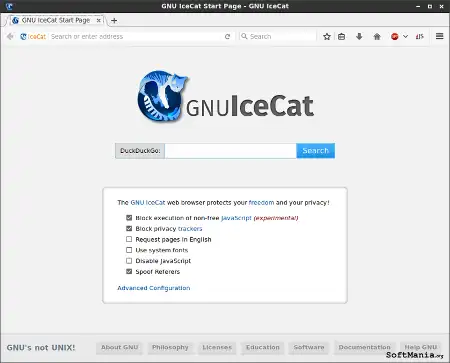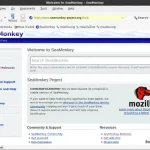Last Updated on: 17th November 2023, 07:41 pm
Web site: www.gnu.org/software/gnuzilla/
Category: Network
Subcategory: Web browsers
Platform: Linux, OS X, Windows
License: MPL, GPL, LGPL
Interface: GUI
First release: 2005 ?
IceCat (GNU IceCat) – a GNU version of the Firefox Extended Support Release (ESR) web browser. Its main advantage is an ethical one: it is entirely free software. While the Firefox source code from the Mozilla project is free software, they distribute and recommend non-free software as plug-ins and addons. Also their trademark license imposes requirements for the distribution of modified versions that make it inconvenient to exercise freedom 3.
GNU IceCat was formerly known as GNU IceWeasel but changed its name in 2008 to avoid confusion with Debian IceWeasel (who was rebranded back to Firefox in 2017 after Debian was being granted special permission from Mozilla).
Important differences between Mozilla’s Firefox and GNU IceCat is that IceCat is focused on freedom and privacy:
– Encrypted Media Extensions (EME) is not implemented
– Widevine Content Decryption Module provided by Google Inc. is not installed in about:addons > Plugins
– The Play DRM-controlled content option has been removed from about:preferences > Content
– WebRTC is enabled like in Firefox but prevent leaking the LAN IP
– The proprietary Mibbit is been removed
– Telemetry is disabled
– DuckDuckGo is the default search engine
– SpyBlock (Adblock Plus fork) to block privacy trackers is installed as default
– Https-Everywhere extension that encrypts your communications with many major websites, making your browsing more secure is installed
– Fingerprinting is a series of techniques allowing to uniquely identify a browser based on specific characters of that particular instance, is installed
The binary packages for Windows and macOS requires non-free software, so they are not distributed for those platforms (source code only).





